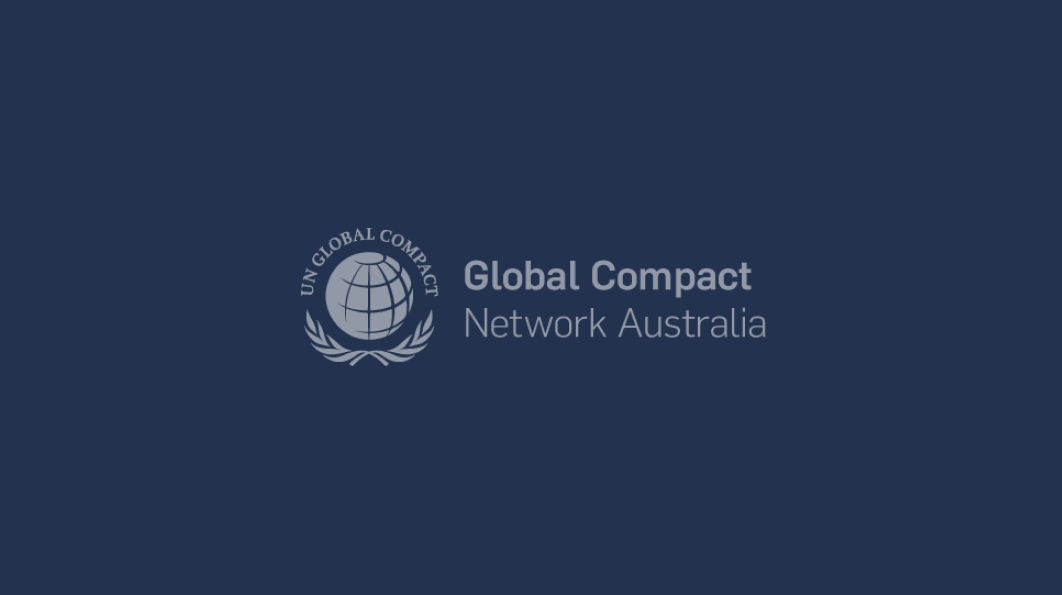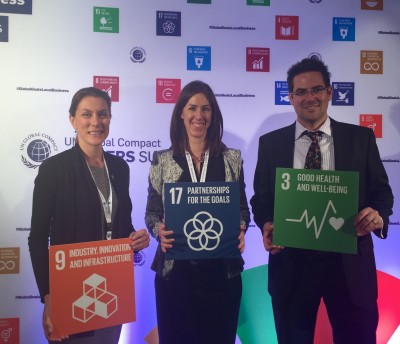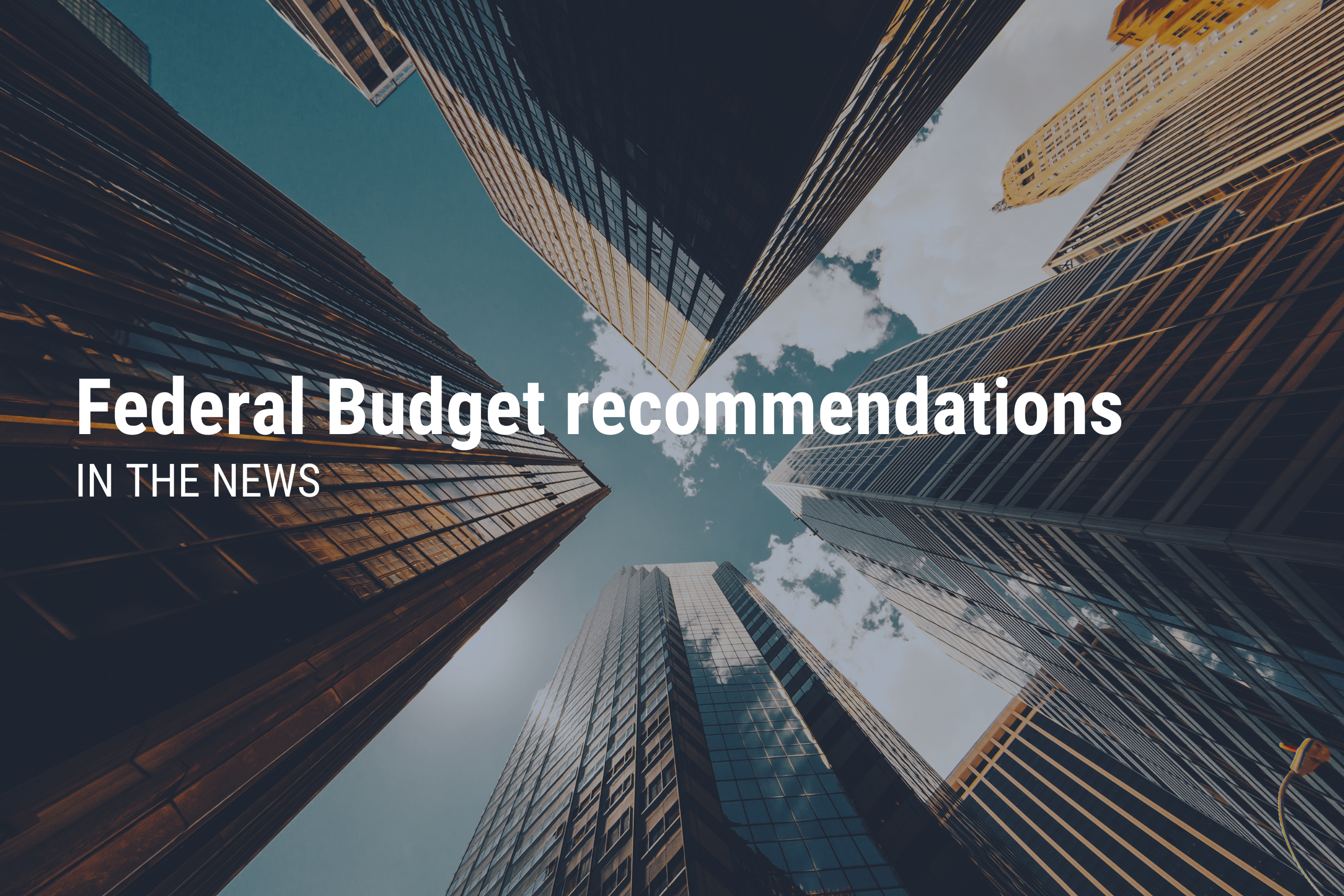
News, Sustainable Development Goals
UN Global Compact Leaders Summit 2016: Making Global Goals Local Business
UN Global Compact Network Australia | June 23, 2016
On 22 June 2016, I joined 1,200 leaders from over 75 countries representing business, finance, government, labour, civil society, academia and the United Nations at the UN Global Compact Leaders Summit in New York to advance the private sector’s contribution to achievement of the Sustainable Development Goals (SDGs).
There was a great sense of optimism, and a pervading theme that businesses can and must do well by doing good.
Key Takeaways
- The SDGs are changing the game for everyone, gaining significant momentum across sectors, shaping stakeholder expectations of business and inspiring businesses to think differently about their impacts (positive and negative) and how to turn risks into opportunities.
- Companies that do business responsibly and find opportunities to innovate around the SDGs will be the market leaders of tomorrow.
- Collaboration and partnership within and between sectors and stakeholders will be key – although that’s easier said than done. (The GCNA is running partnership training workshops this year to help build the capacity of business, NGOs and government to collaborate and partner.)
The SDGs: A Blueprint for Business Opportunity and a Sustainable Future
The UN Secretary-General Ban Ki-moon opened the Summit, emphasising the remarkable achievements of 2015 with the adoption of both the SDGs and historic Paris Climate Agreement.
“Last year’s adoption of the 2030 Sustainable Development Agenda, together with the historic Paris Climate Agreement on climate change, sent a powerful message far and wide: we cannot continue on our current course. We need new ways of living that will end the suffering, discrimination and lack of opportunity that define the lives of billions of people around the world, and that drive instability and conflict. The solutions must involve everyone, from world leaders and chief executives, to educators and philanthropists.”
Leader after leader highlighted the uncertain and fast-changing operating environment businesses face – but that the SDGs offer a blueprint for turning that uncertainty and risk into business opportunity.
Lise Kingo, Executive Director, UN Global Compact said, “Companies that do business responsibly and find opportunities to innovate around the SDGs will be the market leaders of tomorrow.”
Marianne Haahr, Project Director, Global Opportunity Network highlighted the significant opportunities open to businesses that are able to broker access to better lives – healthcare, education, life without hunger.
Making Global Goals Local Business
At the Leaders Summit, the UN Global Compact launched a new multi-year strategy, Making Global Goals Local Business.
“While the SDGs are universal, they will very much be addressed at the national level – where each country will apply their unique history, culture and capabilities. As countries establish and enact national plans for achieving the SDGs, the Global Compact’s Local Networks in approximately 80 countries provide the platform for business to engage with stakeholders from Government, the UN, civil society and communities to map a shared approach.”
Ten Local SDG Pioneers – selected from over 600 nominees in 100 countries – were announced to shine a spotlight on entrepreneurs and changemakers who are demonstrating how business can unlock economic, social and environmental gains in their markets for the new SDG era.
In Australia, through our Sustainable Development Leadership Group, the GCNA is supporting businesses to understand, map against and embed the SDGs in their sustainability and broader corporate strategies. We are also working with peak organisations from other sectors – ACFID, ACOSS and UNSDSN – to convene the Australian SDG Summit in September 2016.
CEOs, Sustainability and Purpose
 The UN Global Compact-Accenture CEO Study 2016 – a survey of more than 1,000 CEOs around the world, and the largest-ever CEO study on sustainability – was released at the Leaders Summit, revealing that CEOs see a unique opportunity to reshape their industries and accelerate progress towards the SDGs.
The UN Global Compact-Accenture CEO Study 2016 – a survey of more than 1,000 CEOs around the world, and the largest-ever CEO study on sustainability – was released at the Leaders Summit, revealing that CEOs see a unique opportunity to reshape their industries and accelerate progress towards the SDGs.
The last study in 2013 exposed CEOs’ frustrated ambition – while they could see sustainability reshaping the business environment and were making efforts to embed sustainability, they struggled to quantify and capture the business value of sustainability, and were constrained by market expectations.
Since then, something has shifted.
The SDGs are inspiring new thinking, with CEOs seeing the goals as an essential opportunity to rethink, reset and refresh approaches to sustainability. We are also seeing a reorientation towards purpose, with 95% of CEOs feeling a personal responsibility to ensure their company has a clear purpose and role in society.
As Peter Lacy, Global Managing Director, Sustainability Services, Accenture Strategy said in launching the 2016 study: “We have an unprecedented opportunity to bend the arc of the global economy towards greater health, wealth, equality, prosperity and happiness.”
Great Expectations
Not only are the SDGs a blueprint for opportunity – they are also a framework for expectation.
The process for adopting the goals was the UN’s most inclusive global consultation process in its history. The resulting goals – having been debated, negotiated and committed to by all governments – now set expectations for all, including business.
NGOs are embracing the SDGs. As Tessie San Martin, President & CEO, Plan International USA said: “The SDGs change the game for everybody… Achieving the SDGs is an exercise in social accountability and civic engagement.”
Governments also expect much from business. H.E. Macharia Kamau, Ambassador and Permanent Representative of Kenya to the United Nations, told the Summit: “What we are enjoying today is an unsustainable proposition… Every single one of us has a responsibility – that is what the SDGs and 2030 Agenda are about. We need business to take the lead, because they have become immensely influential in government policy, community action, the media and everything we produce and consume.”
We are also seeing investors moving. Axel Weber, Chair, UBS said: “Investors are ready to put money and work towards a more sustainable future. Financial firms are ready to facilitate this. Products are becoming ready to make it happen.”
A letter from the SDG Advocates group – sent to all Fortune 500 companies – calls on them to commit to responsible business and align their businesses with the SDGs.
The UN Global Compact: Act Responsibly & Find Opportunity
At the Summit, the UN Secretary-General Ban Ki-moon placed the UN Global Compact at the heart of business engagement with the SDG agenda:
“Achieving the SDGs will require unprecedented cooperation and extraordinary leadership. And it will require us each to be a pioneer, forging ahead into new territory. That means taking personal and corporate responsibility for how we do business and who we choose as our staff and partners. It means taking stock of our decisions as consumers and investors. It also means raising our voices and taking a stand when it matters. The United Nations Global Compact is the forum to make all this happen.”
The UN Global Compact was highlighted as the starting point and avenue for all companies wanting to advance the SDGs, guiding companies to first act responsibility in alignment with the initiative’s ten core sustainability principles, which provide a universal definition for responsible business, and then find opportunities to further support the SDGs.
The UN Global Compact’s new White Paper [PDF] connects the dots between the ten principles and the SDGs.
Collaboration is key
Almost every speaker across the two days of the Summit emphasised that collaboration, partnership and coalition-building is key to achieving the SDGs.
And while everyone acknowledged that all stakeholder group must come together, much work remains to effectively catalyse collaborative action.
Mads Nipper, CEO, Grudfos emphasised that we must all change our entrenched views of other stakeholders and build trust.
To address these challenges and catalyse collaborative opportunities, the GCNA is developing a multi-stakeholder program to build the capacity of business, civil society and government to partner and drive the SDG agenda forward in Australia and wherever Australian businesses are operating.


